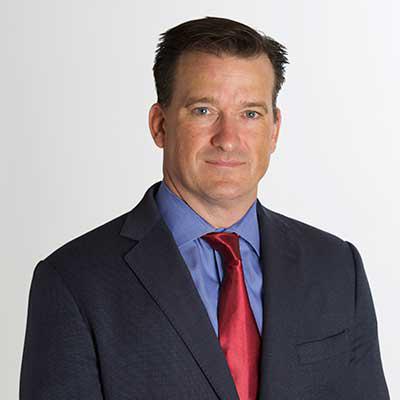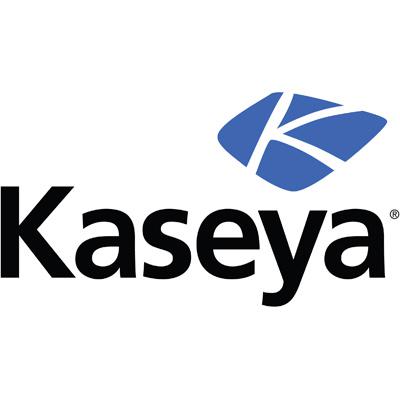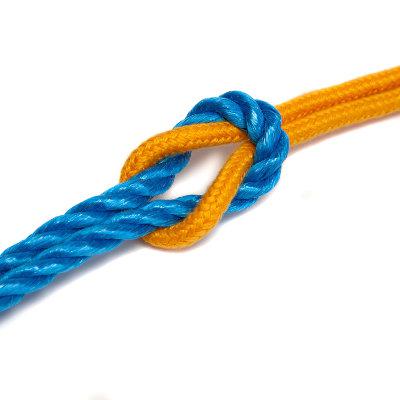CRN Interview: Kaseya CEO Voccola On 2018 Priorities, 'Challenging' ConnectWise Relationship And 'Industry-Shattering' M&A Plans

Pushing Into The New Year
To hear Kaseya CEO Fred Voccola tell it, the MSP platform provider is coming off a "freaking awesome" year, and he's quite bullish on the space in 2018.
With IT spending up among small and midsize businesses, according to Kaseya research, Voccola notes that end users are beginning to demand a broader range of technology that was once seen as being confined to enterprise-class businesses.
"It kind of tracks what we saw in the enterprise from 1990 to 2007," Voccola said. "The enterprise IT infrastructure spend at that time was about five times the rate of GDP growth. In the last four or five years, we're seeing that same trend happen in small to midsize businesses."
In a wide-ranging interview with CRN, Voccola touched on a number of MSP industry topics, including Kaseya's new business intelligence tool – MSP Insights – and how the Datto-Autotask merger might affect the competitive landscape moving forward.

What are some of your top priorities in 2018?
Larger SMBs – companies that might have an IT department of five to 10 people – they're starting to engage with MSPs for their more complicated IT infrastructure needs. MSPs that are servicing small businesses are moving upstream and taking care of part or all of the infrastructure of larger companies. That is a trend we think we'll continue to see in 2018. There are a lot of new regulatory requirements, and these SMBs are looking to their MSPs to help them address their compliance requirements. The same is true of some of the more complicated IT infrastructure requirements – network management, Backup-as-a-Service, Disaster-Recovery-as-a-Service and various compliance and security components. Those are things we'll see SMBs looking for the MSPs to handle.

Where do you think Kaseya MSPs need to invest in order to differentiate themselves?
Network management is a big one. Another is end-user security, simple things like two-factor authentication, single sign-on and password management – not just for security and compliance, but ease of use. What is called identity and access management in the enterprise, we're now seeing dental offices and small manufacturers wanting the same thing. Even making sure an MSP is actively managing the third-party patching of all the laptops, workstations, phones and servers is a huge thing because that's where a lot of vulnerabilities are coming from. SMBs are willing to pay for it, or they're demanding that those things are included when they pay. Compliance all around is coming to be a big piece, including GDPR [General Data Protection Regulation] for our European customers and anyone doing business with Europe.

Kaseya just unveiled a business intelligence tool for customers called MSP Insights. Why is it important for MSPs to know, for instance, what another IT provider is charging for their services?
It's not just pricing. Information and knowledge is key. The more knowledge we have about anything, the better our decision-making can be. We have so much information about what SMBs want and what MSPs are doing. If we share that with the Kaseya customer, then they can make better decisions about their business, whether it's how much to charge for services, what portfolios of services to offer, what is the technical landscape out there, what percentage are doing backup, etc. Here's another way we can help you make better technical decisions, and we're not charging you for it.

Would the platform help MSPs battling the perception that their industry is becoming commoditized?
I don't like the word 'commoditization.' That usually insinuates prices are dropping. We're not seeing that. The average MSP customer is much more tech-savvy now than they were three or six years ago. Technology is becoming less and less scary for non-IT people. The buyers are more interested in how technology can positively impact their business, and that's a really good thing for the market. No longer are MSPs convincing people why the customer needs an MSP. Now they're convincing people why their MSP is the best one or the right one. Endpoint and server management is table stakes. You have to do that very, very well. Patching, monitoring, managing, securing and backing them up.

How does steering Kaseya MSPs toward those priority, in-demand services you mentioned help them achieve differentiation?
Network management, compliance management, end user Security-as-a-Service – those service offerings are growing at about four times the rate of MSP growth overall, which is over 30 percent per year according to our stats. If an MSP is not offering the full spectrum of managed services, that means their customers will be consuming those services from a different MSP at some point in time. As we all know, it's never good to have a competitor in your accounts. They're going to get network management from someone. I wouldn't say it's a way of fighting off commoditization because it's a more educated market.

How do you think the U.S. government's proposed corporate tax cuts might affect MSPs?
I'm assuming most MSPs are small business owners. I think that if the business tax rate comes down, then that'll be good for overall investment and allow MSPs to hire more people. They want to hire more people – I hear that all the time. Due to uncertainty in the tax climate, that's slowed people down. The fact that there will be certainty and not ambiguity, I'm hearing it's allowing business owners to know what the future will look like so they can make investments and plan the business. From Kaseya's perspective, the lower the corporate tax rate is, the more Kaseya can compete internationally and hire more people in the U.S. We're planning on hiring 150 people next year. That number will probably go up a little bit as the corporate tax rate goes down.
Editor's note: This question was asked before the Tax Cuts and Jobs Act was signed into law.

Datto finalized its merger with Autotask last month. Will the deal affect Kaseya's business relationship with Datto?
I anticipate some bumps, but there are bumps in every merger. We're continuing to work with Datto and Autotask. We have some strategic things going on with Datto. They have indicated that they'll continue to be open, as we are. We compete in some areas, we partner in other areas. Both organizations realize taking care of the MSPs is the most important thing. If either of us want to shut the other out, it would not be a good thing for us or the customer. They've said all the right things. Nothing beyond the obvious concerns.

What sort of concerns come to mind?
When Vista [Equity Partners] did this deal, they took on a bunch of debt to make it happen. Datto is the management team that will be in place. Both are very successful, great companies, but neither one generates a lot of cash. To service the debt, they have to make some pretty substantial Opex cuts. The majority of those I anticipate will happen in the Autotask part of the company because Autotask was the acquired company. That's the way things work. Datto is known as an amazing customer support company. They treat their customers like gold. They're also known as having technology that's sometimes a bit dated. It'll be interesting to see what the resource reduction does.

What does a big private equity deal say about the state of the industry?
It'll be good for the industry. It's bringing more attention from large institutional investors that the MSP market is real and that it's worth investing in. You're going to see a lot of private equity firms investing in the space. … There's a root cause of all the interest, investment and excitement: Small to midsize companies are spending a ton of money on IT. When you have a macroeconomic shift, you're going to see that. I think that's going to continue.

On that note, what can we expect from Kaseya on the M&A front in 2018?
We're going to have some industry-shattering M&A announcements. We're pretty excited about those. We're going to continue to be very active. What we will not do is buy companies and have them float around. Everything we buy is very focused on allowing our MSPs to have an integrated, single-pane-of-glass approach to functionality that will let them build more managed services. Security, compliance, network management. … We have a huge amount of room on our balance sheet. We're ripe to write big checks. I don't think you'll see any mega deals other than potentially Kaseya doing something, just because of who has the ability to do it in 2018.

Kaseya announced an enhanced integration with ConnectWise last fall. What's the status of that relationship right now?
We're competitors and partners. Most ConnectWise customers use Kaseya products. Some of our customers use ConnectWise products. They're a notoriously challenging company to work with. I think that's pretty known around the industry. We are forced to invest millions of dollars into integration technologies because ConnectWise makes it very challenging to work with them. Nevertheless, it happens. The integrations we have with our RMM and their PSA are actually deeper than the integration they have with our own. They're a challenging outfit to work with. Autotask puts the customer first more than ConnectWise, just calling it as it is. We'll continue to work with them. I'm hopeful the new executive team they've brought in are more interested in the customer's success than other factors.

What's one thing MSPs should take away from you and Kaseya?
Kaseya customers are the ones that are offering not just the RMM-based technologies, but the more security-centric, compliance-centric and network management-centric solutions. They're able to monetize them and more easily offer them, and they're able to be ahead of the curve. I think you're going to see more of that from Kaseya – tremendous innovation from technical and business model standpoint – to help make sure our customers will be able to grow the fastest and win the most business.